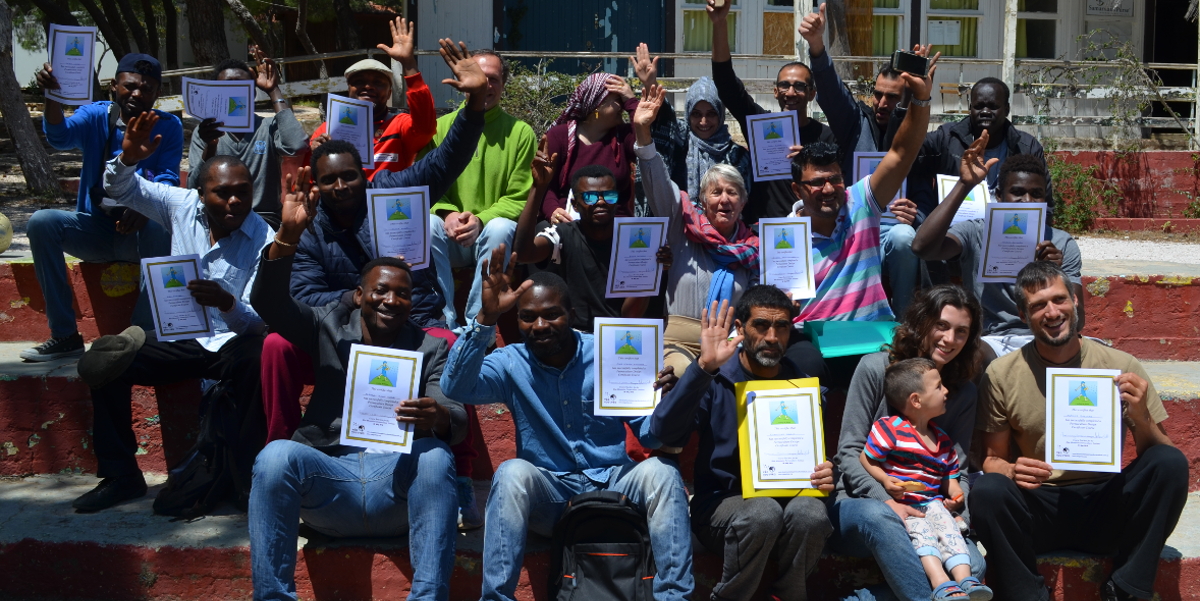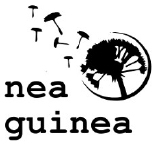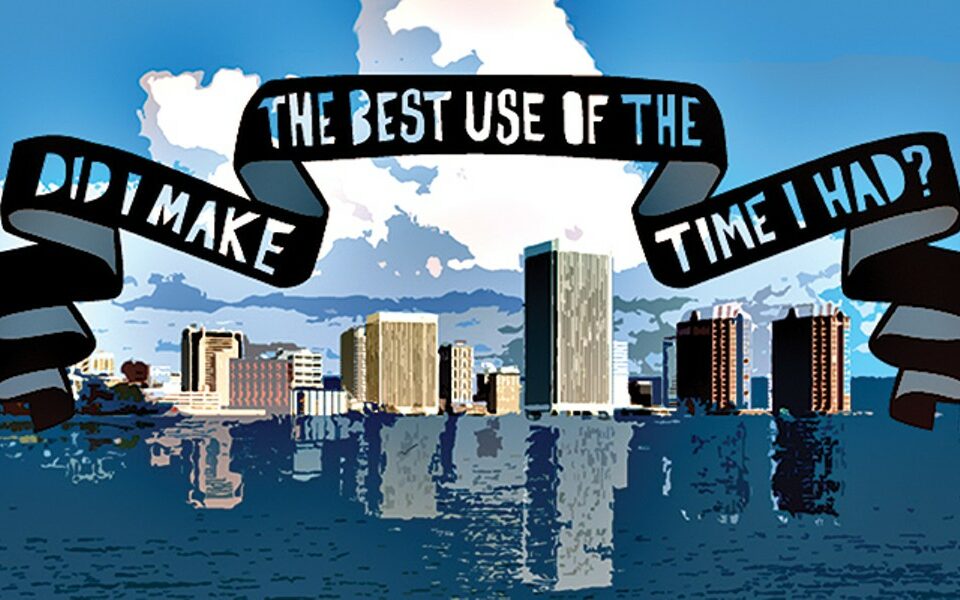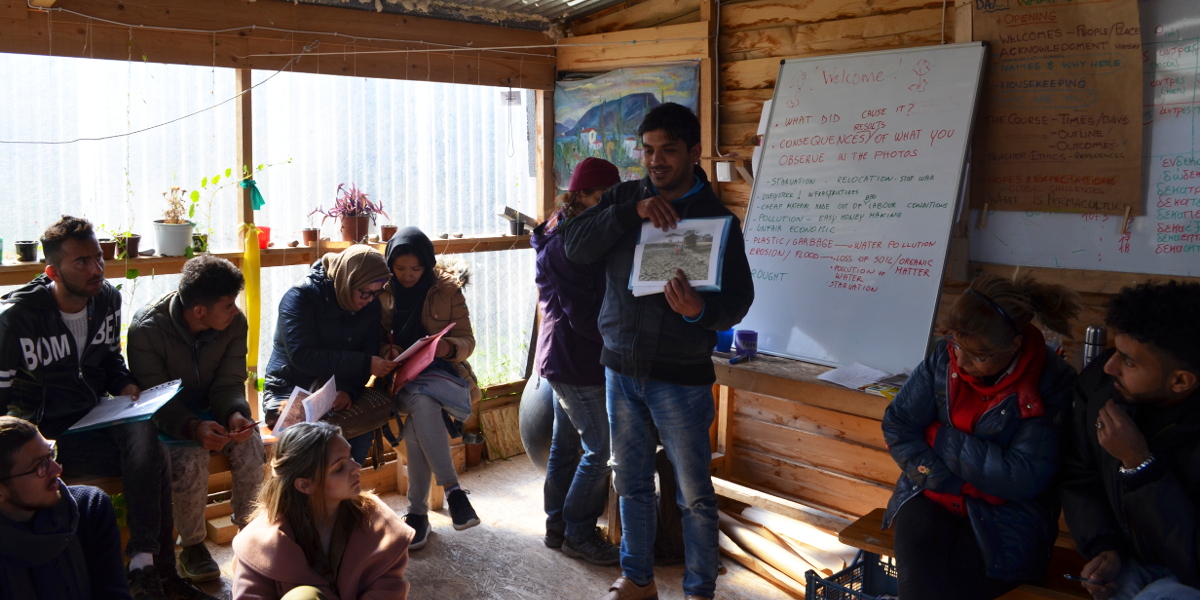
PDC at the One Happy Family refugee day centre in Mytilene, Lesvos
30 April 2019
Spring of 2019 at the Mediterranean Permaschool
20 May 2019The course took place from the 18th of April till the 9th of May at the Laurio Refugee Camp in Attica and was organized by Permaculture for Refugees (P4R) in collaboration with the Mediterranean Permaschool of Nea Guinea. The camp is located within a pine forest and is set up using the infrastructure of a former summer camp site that was initially used by the kids of the employees of the ministry of Agriculture. The site mainly consists of detached wooden houses placed in clusters among vegetation with each one of them accommodating a family or a small group of people. The camp is small but quite diverse. There are about 250 residents coming mainly from 4 nationalities. During the day the place is really quiet and the only noise comes from numerous kids that freely play around.
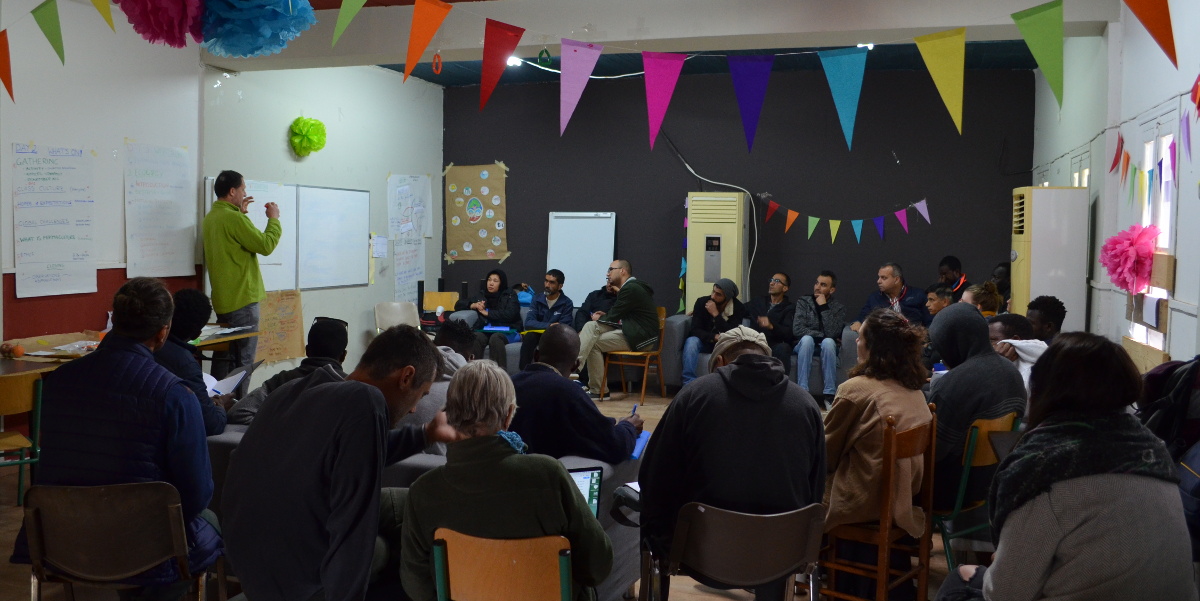
This course brought together a group of about 20 men and women from different countries and cultural backgrounds in a shared learning and working experience with the objective to redesign everyday life in temporary human settlements. The teaching team consisted of Rosemary Morrow, Fotini Georgousi and Antonio Scotti. The lessons were held in English and were translated simultaneously in Arabic, Farsi and French.
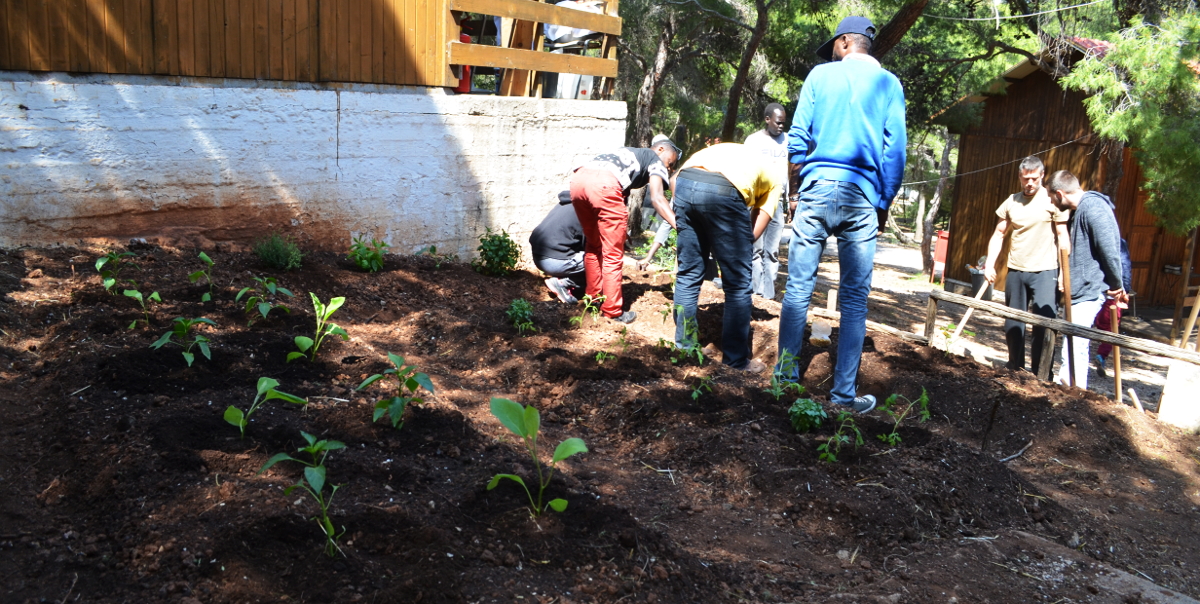
Our aim as a teaching team was to give the participants a thorough understanding of the Permaculture ethics and principles and at the same time to facilitate the development of participants’ skills in designing and implementing different techniques for the management of natural resources and the re-arrangement of human activity, in order to meet a wide range of basic daily needs in food, water, energy and housing in a regenerative way. The course consisted of diverse learner centered activities, that introduced the group to creative problem solving and promote team work considering cultural differences and individual learning styles. Combining theory and practice we all worked on creative interactions and positive feedback loops that could influence camps’ everyday life and benefit both the communities as well as their surrounding ecosystems.

The theory classes involved:
– permaculture ethics and principles
– ecoliteracy
– rain water harvesting and grey water management
– soil regeneration
– sustainable food production systems (annual – perennial)
– seed production and saving
– retrofitting living spaces
– design process and methodology for home and camp design
– climate change and global challenges
– ethical money
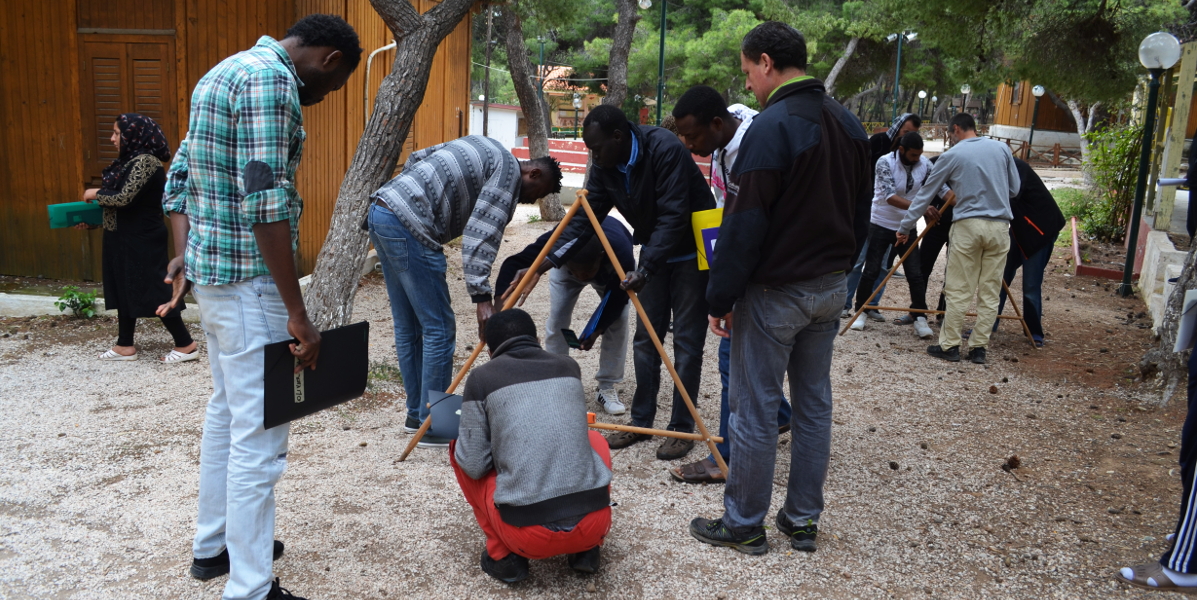
The practical classes involved:
– building compost hips, with material collected from the local market and the participants’ kitchens
– marking contour lines with A frames and water levels
– collecting and testing soil samples
– planting seeds of summer vegetables
– designing and constructing 3 community vegetable gardens, that will be managed by different groups of participants
– demonstration of different gardening techniques relevant to this climate
– planting trees
– demonstrating container gardening techniques for small spaces
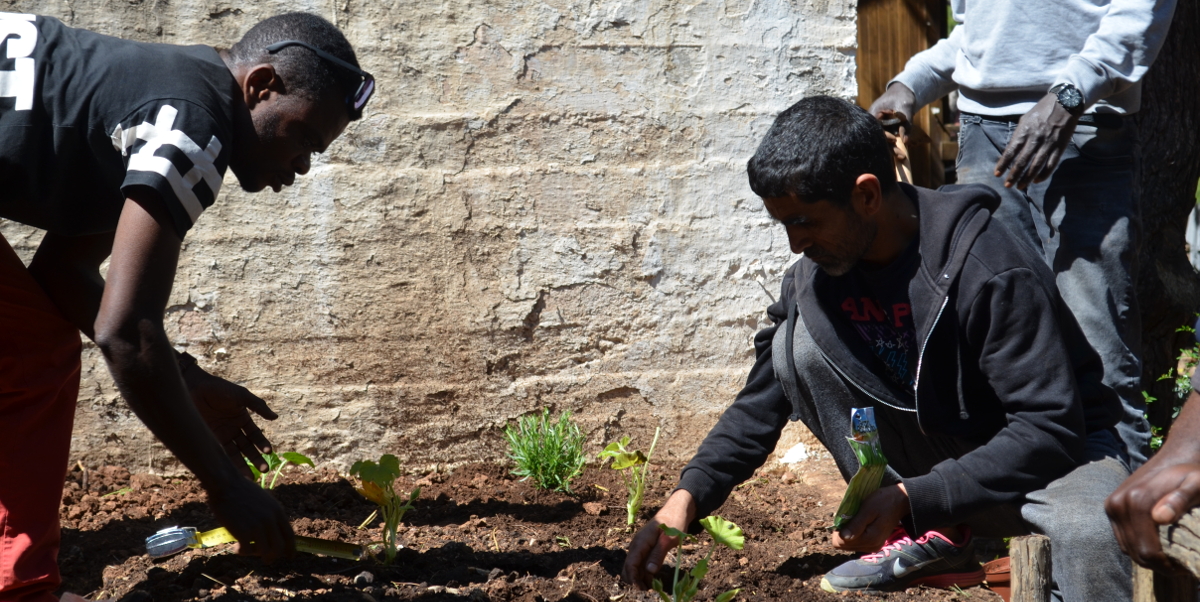
During the course we provided the participants with printed documents in their languages and also with all the necessary garden tools and materials (cow manure, straw bales, seeds and seedlings of vegetables and herbs) for the establishment of the gardens.
The participants were enthusiastic and highly responsive to all group activities . They were there on time, they were taking notes, commenting, asking questions and they were having subject related conversations out of class. Moreover they were highly motivated for physical work and they were voluntarily staying later than the class schedule to finish with practical tasks. Out of the 22 people initially signed up, 19 completed the course and got their certificate of attendance. Camp and NGOs’ staff commented that such retention rates in a course were unknown and, so completely unanticipated.
We are very thankful to the DRC staff that was immensely co-operative and did their best to support us with translation, infrastructure and equipment.
